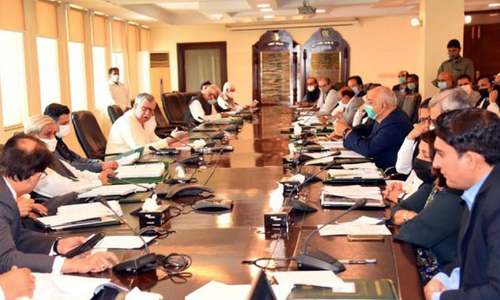ISLAMABAD: Prime Minister Imran Khan will inaugurate on Monday (today) the much ambitious Kamyab Pakistan Programme (KPP) under which Rs1.4 trillion soft loans will be provided to 3.7 million families across the country.
The programme will have five components. Famers will get interest-free loans under the Kamyab Kissan programme, financing of up to Rs500,000 will be made for setting up a business under the Kamyab Karobar programme, financing on easy installments will be extended for construction of houses under the Sasta Ghar scheme, besides linking successful skilled-based scholarship scheme and Sehat Insaf Card with the KPP, said a press release issued by the Prime Minister Office.
It quoted Finance Minister Shaukat Tarin as saying that the KPP would be a major initiative by the government to alleviate poverty by empowering the deprived segments of society and supporting them to transform their lives.
The programme would also link low-income groups with banks through microfinance institutions, the press release said, adding that it also reflected the sense of state’s responsibility towards its weaker segments of society.
Detailing some of the features of the programme, the finance minister said the programme aimed to provide support to the people in housing projects, skill development, health cards and interest-free loans for businesses and agricultural services. However, he made it clear that the targets would be achieved over a period of time and not in one year.
Mr Tarin said that Rs300-400bn interest-free loans would be given during the current fiscal year, adding that the amount had also been budgeted to provide subsidy against interest-free loans.
At a recent meeting, State Bank Governor Reza Baqir had reportedly welcomed the goals of KPP, especially its bottom-up approach. However, he suggested better burden sharing between banks and taxpayers and said it might be advisable to keep the government guarantee to commercial banks limited at 50 per cent of banks’ lending as was decided by the Economic Coordination Committee of the cabinet.
This would help ensure that banks had a stake in the programme, conduct the needed credit assessment before lending and, thereby, reduce the potential bill to taxpayers from the government guarantees being called, he added.
Special Assistant to the Prime Minister (SAPM) on Social Protection and Poverty Alleviation Dr Sania Nishtar had reportedly pointed out that the proposal wasn’t routed through the Poverty Alleviation and Social Safety Division, although the scheme was predicated on Ehsaas Programme data. However, while endorsing the principle behind this initiative, she felt that the design needed a careful review, according to a media report.
With respect to targeting, the SAPM said it would be advisable to offer loans only to “graduating” Ehsaas beneficiaries and discontinue Ehsaas grants to those who receive loans to avoid duplication. She pointed out that the summary stipulated that those below the income of Rs50,000 would be eligible, but that meant over 30 million families.
She said there was a need to clearly define how three million people were going to be selected out of potential 30m beneficiaries. The summary also indicated that 4.5 million at the bottom would be prioritised. However, it needed to be brought to bear that these were not credit-worthy, and the risk of bad debt accumulating was high, especially with the government’s sovereign guarantee, he added.
On the matter of procurement, Ms Sania said that since subsidy and fee had been involved in the scheme, it would have been ideal to go into open competitive bidding under the new PPRA Rule 16(A). She had also suggested that in the presence of organisational entities responsible for stewarding lending, such as PPAF and PMIC, there was no need to entrust execution to a project management unit at the Finance Division.
The SAPM also mentioned the need to explore how the sovereign guarantees appeared in the context of the Fiscal Responsibility and Debt Limitation Act and the need to study risk-sharing arrangements of the housing initiative, which appear to be better organised. She was of the view that it should be made mandatory to ensure that the loan recipients were “new” so that there was no risk of more expensive credit being replaced by cheaper credit.
Published in Dawn, October 4th, 2021














































